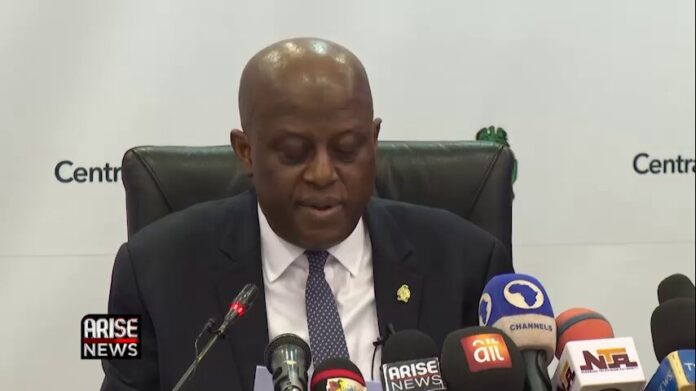The Central Bank of Nigeria (CBN) has unveiled ambitious plans for the country’s financial sector in 2025, promising to implement transformative measures aimed at boosting financial inclusion, enhancing payment systems, and fostering technological innovation.
In a statement at the Bankers’ Committee Annual Dinner on November 29, 2024, CBN Governor, Olayemi Cardoso, revealed that the apex bank would prioritize the implementation of open banking, the expansion of contactless payment systems, and the growth of its regulatory sandbox.
These key initiatives are part of the CBN’s strategy to modernize Nigeria’s financial services landscape and keep pace with global developments.
Open Banking: A Game-Changer for Nigeria’s Financial Sector
One of the major initiatives highlighted by Governor Cardoso is the adoption of an open banking framework. Open banking allows banks to securely share customer financial data with third-party service providers, creating opportunities for innovation in the fintech space.
According to Cardoso, open banking will foster new financial products, improve customer service, and enhance the overall user experience across the sector.
He noted, “Open banking is a global trend, and it’s time for Nigeria to embrace it. This move will allow for more innovative solutions and make financial services more accessible to Nigerians.”
The CBN believes that the open banking framework will not only boost the fintech sector but also contribute to the country’s broader financial inclusion efforts. As the industry continues to evolve, the ability to securely share data will unlock more efficient and personalized financial services for customers.
Contactless Payments: Keeping Up With Global Trends
Another major priority for the CBN in 2025 is advancing contactless payment systems. Governor Cardoso emphasized the need for Nigeria to align with global trends where contactless payments are rapidly becoming the preferred method of transaction, particularly in retail environments.
“Contactless payments are the future of financial transactions,” Cardoso stated. “We are committed to driving the adoption of this technology to make payments faster, more secure, and more efficient, especially for Nigeria’s tech-savvy youth.”
Contactless payments, which involve using cards or mobile devices to make quick, secure transactions without the need for physical contact, are expected to revolutionize Nigeria’s payment ecosystem. By reducing transaction times and promoting cashless solutions, the initiative aims to bring Nigeria in line with other countries leading the way in digital payment innovation.
Regulatory Sandbox: A Playground for Innovation
The CBN is also focusing on expanding its regulatory sandbox, an initiative that allows fintech companies to test new products and services in a controlled environment under the supervision of the central bank.
Governor Cardoso sees the sandbox as a vital tool for fostering innovation. “Our regulatory sandbox will provide fintech startups and financial institutions with the space to experiment with emerging technologies like blockchain, AI, and digital currencies,” he said.
By expanding the sandbox, the CBN hopes to encourage more businesses to explore innovative solutions that can drive the growth of Nigeria’s digital economy. The sandbox will help ensure that these innovations are properly regulated, offering security and stability to the financial system.
Strengthening Nigeria’s Electronic Payment Infrastructure
Alongside these initiatives, Cardoso stressed the importance of reinforcing Nigeria’s electronic payment infrastructure. The CBN intends to invest in bolstering payment channels to support a more resilient cashless economy.
This includes enhancing the security of electronic payment systems to protect against growing cyber threats. As more Nigerians embrace digital transactions, ensuring the robustness of payment infrastructure will be crucial to maintaining trust and reliability within the system.
“We must stay ahead of potential cyber threats. Strengthening our electronic payment infrastructure is essential to building a more secure and efficient financial ecosystem,” Cardoso remarked.
Agency Banking: Revisions to Boost Financial Inclusion
The CBN also plans to update guidelines for agency banking, which serves as a vital tool in extending financial services to rural and underserved communities.
Agency banking allows individuals to access banking services through local agents, eliminating the need to visit bank branches. The new guidelines will focus on improving the security and operational efficiency of these networks, ensuring they continue to provide a reliable and inclusive channel for financial services.
“Agency banking plays a crucial role in bringing financial services to people in rural areas who may not have access to traditional banks. By revising the guidelines, we hope to strengthen this channel and ensure it serves Nigerians better,” Cardoso added.
A Vision for a Modern, Inclusive Financial System
The initiatives laid out by the CBN reflect the bank’s broader vision of creating a modern, resilient, and inclusive financial system. By embracing digital transformation and regulatory innovation, the CBN is positioning Nigeria to become a leader in digital finance across Africa.

